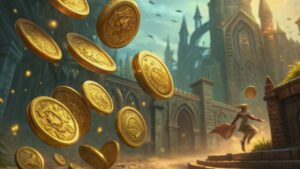
Chord Diary Depresiku
In the realm of music, chords are like the building blocks that construct a beautiful edifice. As for me, I’ve found solace penning down my feelings and experiences in a unique way – through my ‘Chord Diary Depresiku’. This diary has become more than just a chronicle of chords; it’s turned into an expressive journey, reflecting my state of mind during various phases of life.
During times when words failed me, these chords stepped in as an eloquent language. Just as how artists paint their emotions on canvas, or writers weave them into prose, I’ve been encapsulating mine using musical notes. My chord diary is not only about heart-wrenching blues or melancholic melodies; it’s also filled with euphonious tunes echoing joy and victory.
So let’s dive deeper into this fascinating world together! Whether you’re musically inclined or simply love the idea of expressing your emotions through unique channels, join me in exploring the enchanting universe that resides within my ‘Chord Diary Depresiku’. It’ll offer you an intimate look at how I translate raw emotion into harmonious symphonies and might even inspire you to start your own musical journal!
What is Chord Diary Depresiku?
Let’s delve right into it! “Chord Diary Depresiku” is a term that might seem foreign to many, but for music enthusiasts and in particular, guitarists, it has an intriguing meaning. Essentially, it refers to the practice of keeping a diary or record of various guitar chords used within songs. This concept originated from Indonesian music culture where ‘Depresiku’ translates to ‘my depression’. In this context, the chord diary serves as an emotional outlet for musicians.
Understanding the Concept
So why would someone keep such a diary? First off, recording these chords can be incredibly beneficial for guitar players of all levels. It offers an organized way to track your progress over time. As you learn new chords and incorporate them into your songs or covers, jotting them down helps remember what works best for specific tunes. Furthermore, looking back at your entries can also provide insights into patterns and trends in your playing style.
The emotional aspect plays a significant role too; hence the term “depresiku”. Music often serves as an essential tool for expressing feelings and emotions that words alone can’t convey fully. Keeping a chord diary allows musicians to associate certain chords or progressions with different moods or feelings they’ve experienced during their musical journey.
Importance of Keeping a Chord Diary
Now let’s explore why maintaining such diaries could be crucial for musicians:
- Improvement: If you’re serious about honing your skills on the strings, keeping track of practiced chords helps evaluate improvement over time.
- Creativity: By having all these different chord progressions just one flip away in your diary aids when you’re crafting original compositions.
- Emotional Connection: Just like how writers use diaries to express themselves through words – musicians do so through melodies. A chord diary enables artists to channel their emotions more accurately by correlating specific sounds with their feelings.
In a nutshell, a “Chord Diary Depresiku” is more than just a notebook filled with guitar chords. It’s an intimate space where musicians can document their growth, ignite creativity, and express emotions through music.
How to Start a Chord Diary Depresiku
I’ve always found solace in my music. The feeling of strumming my guitar, the chords resonating with my innermost feelings, it’s therapeutic. I’d like to share how you can start your own chord diary Depresiku, a unique way to express and manage your feelings through music.
Choose the right notebook or app
Now before we dive into the process, let’s talk about what you’ll need. A physical notebook or an app where you can jot down your chords is essential. I personally prefer using old-school notebooks; there’s something gratifying about writing down your chords on paper. But if you’re more tech-savvy, there are countless apps available that will serve just as well.
Organize your chords
Next up is organizing your chords. You might be wondering – why would I need to do that? Well, trust me when I say it’ll make things easier for you in the long run. Remember this isn’t just any diary; it’s a musical journey of sorts expressing depressive feelings.
One way to organize could be by dates or moods associated with certain days. Another could be by types of chords – major, minor and so on.
Write down additional notes
Lastly but equally important, don’t forget to write down additional notes alongside each chord progression! This is what sets apart a standard chord diary from a ‘Depresiku’ one (which translates from Indonesian as ‘my depression’). Here’s where you vent out all those pent-up emotions – whether they’re related to specific events or random thoughts that come along during the day.
For instance, under one set of C Major 7th chord progression scribbles, I once wrote: “Feels like floating adrift in an ocean… endless waves lapping against me… yet not quite drowning.” These little snippets provide context and add a layer of emotional depth to your chords.
Creating a chord diary Depresiku is not only about making music, but it’s also a journey of self-discovery and healing. By combining the power of words with the beauty of chords, you’re singing your heart out on paper. And who knows – your chord diary might turn into an album someday! So grab that notebook (or app) and start strumming away those blues!
This journey into “chord diary depresiku” has been insightful for me—I hope it was for you too. Keep exploring music in all its forms; it’s not just sound—it’s emotion, expression and so much more!














